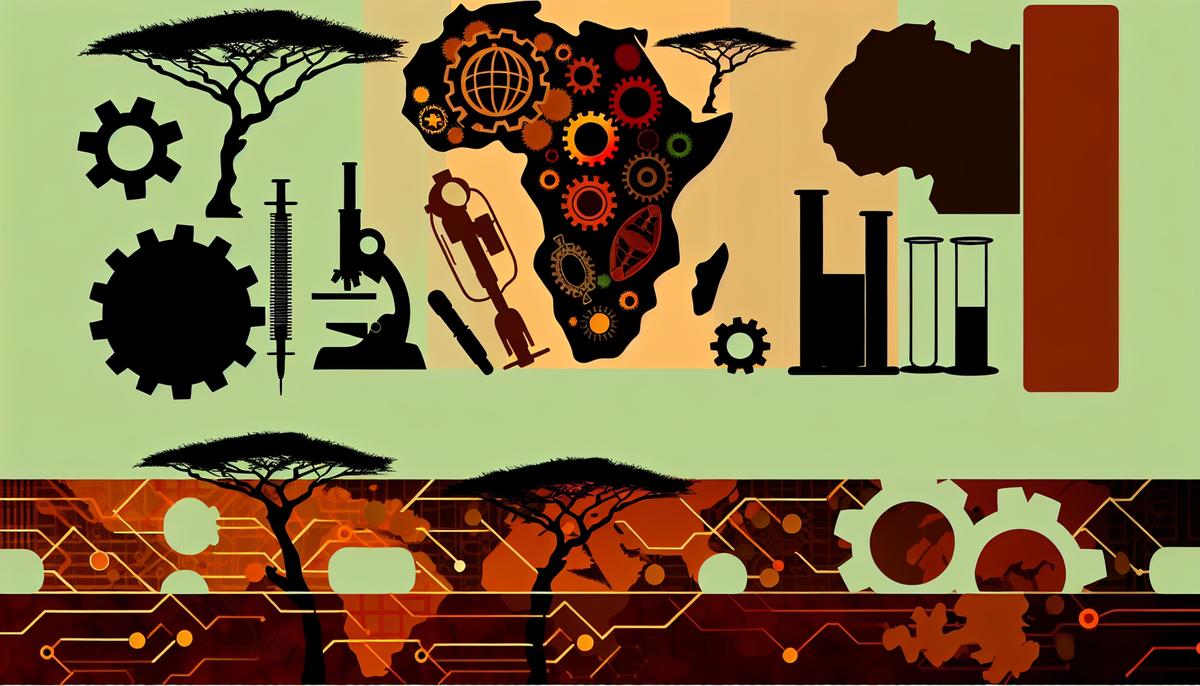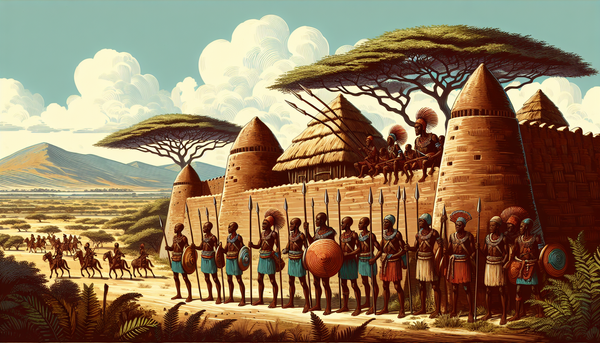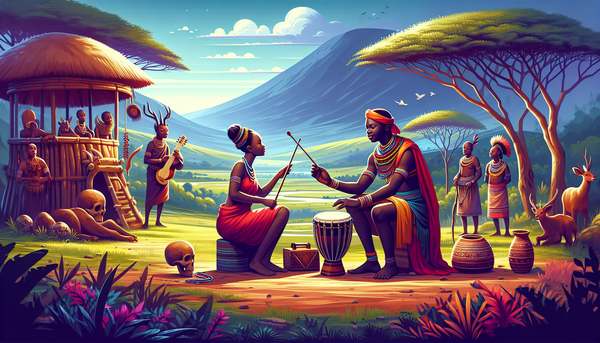African Contributions to Science and Technology

Pioneers in Mathematics:
African mathematicians have made significant contributions to the field throughout history. One notable figure is the ancient Egyptian mathematician, Ahmes, who authored the Rhind Mathematical Papyrus around 1650 BCE. This document contains various mathematical problems and is considered one of the earliest mathematical texts in existence. Another renowned mathematician is the Nigerian scholar, Abdulhameed Hassan, who developed the Hasan Circles, a mathematical concept that explores the relationship between circles and angles.
In more recent times, South African mathematician, William Massey, made significant contributions to the study of algebraic topology. His work on the Massey product plays a crucial role in modern mathematics. These pioneering mathematicians from Africa have not only advanced the field through their research and discoveries but have also inspired future generations of mathematicians across the continent and beyond.
Medicinal Knowledge and Practices:
African traditional medicine has a rich history dating back thousands of years and continues to play a vital role in healthcare practices on the continent. Traditional healers, known as "sangomas" in Southern Africa or "herbalists" in other regions, have deep-rooted knowledge of local plants and herbs with medicinal properties. These healers use a combination of natural remedies, spiritual rituals, and traditional beliefs to treat various ailments.
One example of African medicinal knowledge is the use of the African peach tree (Prunus africana) for its medicinal properties in treating prostate issues and other ailments. Additionally, the leaves of the African aloe plant (Aloe ferox) are known for their healing properties and are used to treat skin conditions and digestive issues.
While Western medicine has become more prevalent in African countries, many people still rely on traditional healing practices due to their accessibility, affordability, and cultural significance. The integration of traditional medicine with modern healthcare systems is gaining recognition for its holistic approach to healing and wellness.
Technological Innovations in Agriculture:
African farmers have historically developed innovative agricultural techniques to enhance productivity and sustainability in a variety of environmental conditions. One notable example is the use of "zai pits" in West Africa, a traditional farming method that involves digging small planting holes and adding manure to improve soil fertility and water retention. This technique has been instrumental in combating soil erosion and increasing crop yields, particularly in regions prone to drought.
In recent years, technological advancements have further revolutionized agriculture in Africa. Technologies such as mobile applications for weather forecasting, soil analysis, and market information have empowered farmers to make informed decisions and optimize their production processes. Additionally, the adoption of precision agriculture techniques, like drone technology and satellite imaging, has enabled farmers to monitor crop health, optimize irrigation practices, and reduce input costs.
These technological innovations are not only improving food security and livelihoods for farmers across the continent but also contributing to the overall resilience and sustainability of African agriculture in the face of climate change and other challenges.
Contributions in Astronomy:
African civilizations have a long history of astronomical observations and knowledge that have greatly influenced the development of the field. Ancient civilizations such as the Egyptians, Nubians, and Ethiopians had advanced astronomical systems to track celestial movements, seasons, and timekeeping. The ancient Egyptian calendar, for example, was based on the movements of the stars and the annual flooding of the Nile.
In more recent times, South Africa has emerged as a hub for astronomical research with the establishment of world-class observatories such as the South African Astronomical Observatory and the Square Kilometre Array (SKA) project. The SKA project, in particular, represents a collaboration between multiple African countries and international partners to build the world's largest radio telescope array, enabling groundbreaking discoveries in astrophysics and cosmology.
The contributions of African astronomers and the continent's commitment to advancing astronomical research continue to play a significant role in expanding our understanding of the universe and inspiring future generations of scientists and stargazers.
Development of Metallurgy:
Metallurgy has played a crucial role in African history, with ancient civilizations mastering the art of working with metals to create tools, weapons, and artistic objects. The Nok culture in Nigeria, dating back to around 1500 BCE, is known for its intricate iron smelting techniques and the production of distinctive terracotta sculptures. These early metallurgical advancements laid the foundation for more sophisticated metalworking practices in later African societies.
One of the most significant contributions to metallurgy in Africa is the development of ironworking techniques. Iron smelting was independently discovered in sub-Saharan Africa around 2000 years ago, leading to the production of durable iron tools and weapons that revolutionized agriculture, warfare, and trade. The Bantu people, in particular, are renowned for their ironworking skills, which enabled them to expand their agricultural practices and establish flourishing civilizations across the continent.
Today, African countries continue to innovate in the field of metallurgy, with modern technologies and processes being used to extract and refine metals for various industrial applications. The legacy of ancient metallurgical traditions in Africa endures in the vibrant metalworking activities and cultural artifacts found throughout the continent.
Environmental Management and Ecology:
African nations are increasingly recognizing the importance of sustainable environmental management and ecological conservation to protect their natural resources and biodiversity. The continent is home to diverse ecosystems, from savannas and rainforests to deserts and marine habitats, all of which require careful stewardship to ensure their continued health and resilience.
Efforts in environmental management include the establishment of protected areas such as national parks, reserves, and marine sanctuaries to safeguard critical habitats and endangered species. Countries like Kenya, Tanzania, and South Africa have made significant investments in ecotourism, which promotes conservation efforts while providing economic opportunities for local communities.
In response to the growing threat of climate change, African countries are also adopting strategies to mitigate environmental impacts and build resilience. Initiatives focusing on renewable energy development, reforestation projects, and sustainable land management practices are being implemented to reduce carbon emissions and promote sustainable development.
Through these collective efforts, African nations are working towards a more sustainable future that balances ecological conservation with economic development, ensuring the preservation of the continent's natural heritage for future generations.
Architecture and Engineering:
African architecture and engineering showcase a rich tapestry of history, culture, and innovation, blending traditional techniques with modern design concepts. Ancient African civilizations, such as the Egyptians, Nubians, and Axumites, were renowned for their architectural marvels, including the pyramids, temples, and obelisks that still stand as testaments to their engineering prowess.
Contemporary African architects and engineers are drawing inspiration from these historical achievements to create sustainable and culturally relevant structures that address modern challenges. Innovations in green building technologies, renewable energy systems, and locally sourced materials are shaping the future of African architecture, promoting energy efficiency and environmental conservation.
In addition to modern architectural trends, there is a growing emphasis on community-driven design approaches that prioritize social impact and inclusivity. Projects that empower local communities, preserve cultural heritage, and promote sustainable urban development are gaining traction across the continent.
Through a blend of traditional wisdom and cutting-edge technologies, African architects and engineers are shaping the built environment in innovative ways that celebrate the continent's diverse heritage and contribute to sustainable development goals.



